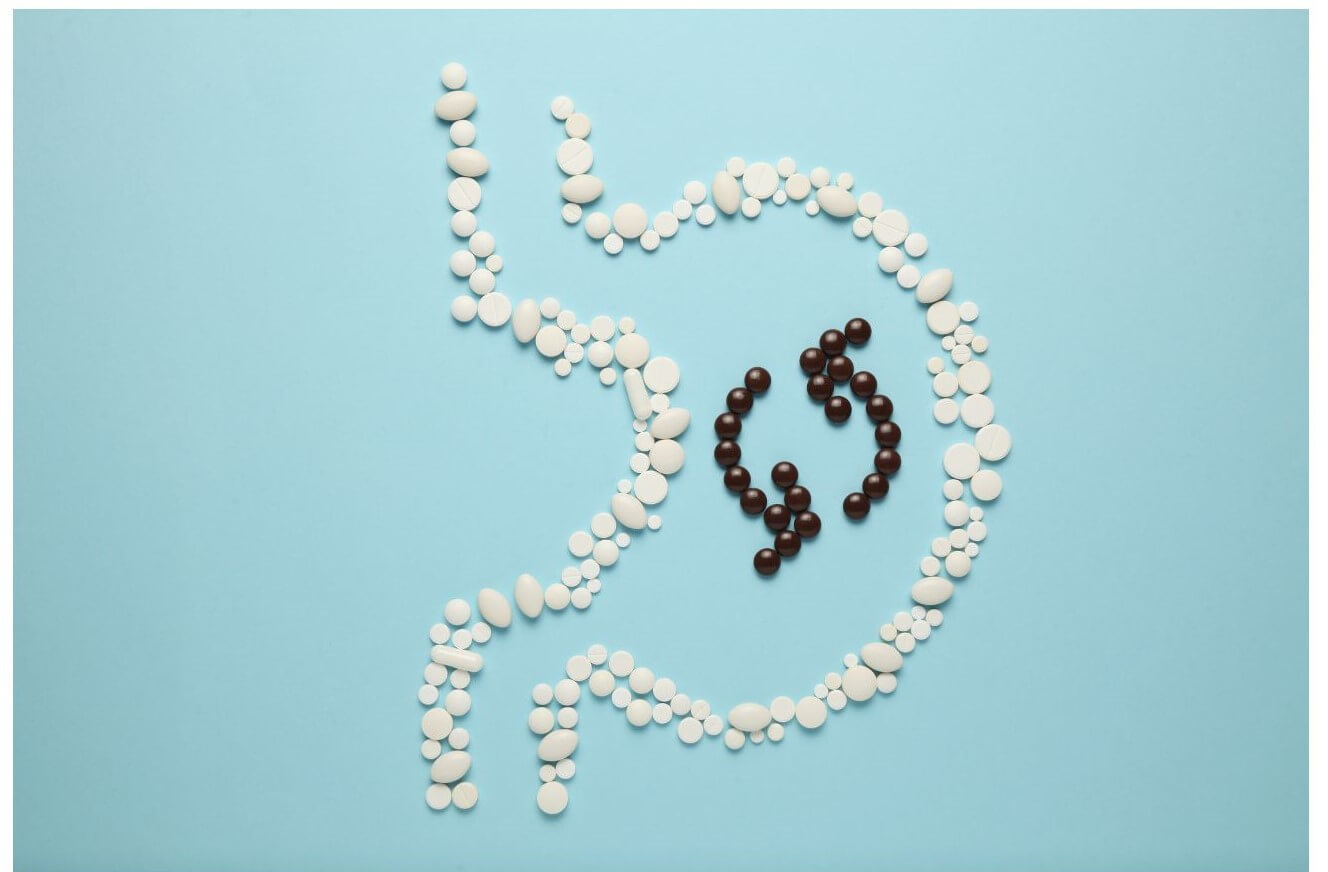Semaglutide medications have exploded in popularity in the last few years, and it’s no wonder why. These prescriptions can help patients who have been struggling for years to finally lose weight and reduce their risk of developing chronic diseases like type 2 diabetes. But for the rest of us who don’t have access to—or just don’t desire a prescription medication—is there a natural alternative?
If you haven’t yet heard of berberine, get ready to be impressed by a humble plant compound that was largely obscure to the Western world, until researchers discovered its promising potential to support the chronic metabolic conditions that are sweeping the modern world. Berberine has been called by some people “nature’s Ozempic” when it comes to reversing insulin resistance, improving blood sugar control, and (of course) helping you lose weight.
Let’s find out what the science really says, the benefits of berberine, and help you decide if this natural alternative is right for you.
Learn more about natural remedies and how to live your best life inside my community, the Superwoman Circle.
Is there a natural alternative to Ozempic?
Ozempic is a semaglutide medication that is used to treat type 2 diabetes and other weight-related conditions. It works by attaching to GLP-1 receptors in the body to reduce the amount of glucose produced, and improve insulin sensitivity to promote weight loss.
There isn’t a natural source of semaglutide, but there are plant-based alternatives that may hold many of the same benefits for weight loss and blood sugar control without the prescription.
And while Ozempic has been approved by the FDA for use in treating type 2 diabetes, it does come with its own risks and side effects, which make it a less-than–ideal choice for some people.
Berberine has been helping people boost weight loss for many years
Berberine increases an enzyme called AMPK, which is thought to be responsible for benefits such as weight loss, PCOS management, fertility, blood sugar control, and supporting insulin sensitivity.

It has a long history of therapeutic use in Ayurveda and Chinese medicine, and more recently Western research validates its benefit to the human body, making it a great tool for metabolic support in holistic medicine.
Plus, berberine’s benefits aren’t limited to metabolism. It’s consistently shown to promote healthy cholesterol levels, triglycerides, and liver health (1).
Related: The Most Effective Supplements for PCOS Symptoms
What is Berberine?
Berberine is an alkaloid extracted from the roots, stems, or bark of various plants, including goldenseal, Oregon grape, and barberry. It’s usually taken as a supplement.
Berberine has demonstrated anti-inflammatory and antioxidant properties and current research is focusing on its potential for use with diabetes, obesity, PCOS, and fertility, to name a few (2).
What Does Berberine Do?
Berberine activates an enzyme called adenosine monophosphate-activated protein kinase, AMPK, which is most responsible for metabolic activity. It also helps lower blood sugar levels and improves insulin sensitivity in type 2 diabetics (3).
As one researcher shares in the Natural Medicine Journal, “activating AMPK can produce the same benefits as exercise, dieting, and weight loss—the lifestyle modifications considered beneficial for a range of maladies.”
Berberine is one of only a handful of compounds that activate AMPK, making it a valuable tool in addressing modern day health issues.
Berberine has been shown to reduce glucose production in the liver, decrease fasting blood sugar levels, and increase insulin sensitivity (4).
Berberine and weight loss
One 2023 review declared that ‘many previous studies’ have shown that berberine supplementation reduces obesity through its impact on the gut microbiome, genetic expression, and by reducing glucose production in the liver (5).

Through berberine’s activation of AMPK, it’s been shown to support weight loss goals by improving blood sugar metabolism, and supporting the use of body fat for fuel (4).
Berberine has also been shown to assist weight loss by inhibiting the enzyme lipoprotein lipase, which increases fat storage (6).
In one study, individuals who were obese lost an average of 5 pounds and 3.6% of body fat after taking 500 mg of berberine, three times per day (4).
Read: Should You Detox to Lose Weight? The 6 Toxins That Make You Store Fat
Berberine promotes gut bacteria that help with weight loss
Berberine may also help with weight loss through its ability to modulate the gut microbiota. Negative changes in gut bacteria have been connected to metabolic diseases, including type-2 diabetes and obesity (7).
Bacteroidetes and Firmicutes are two types of gut bacteria that play a role in body weight & fat storage. Some studies have found a link between a greater number of Firmicutes than Bacteroidetes in obese individuals compared to lean individuals. One animal study found that berberine reduced the number of Firmicutes in the gut and significantly lowered blood glucose, lipid levels, and body weight (8).
Read: Probiotics That Help You Lose More Belly Fat
Berberine and blood sugar

Metabolic disorders, such as type 2 diabetes, obesity, and metabolic syndrome are a huge problem in modern life. Unhealthy blood sugar levels & insulin resistance are hallmarks of these conditions. A large portion of studies examining berberine focus on its role in lowering blood sugar levels. Take a look at these impressive findings:
- When taking 1 gram of berberine per day, individuals with type 2 diabetes were able to lower their fasting blood glucose by about 20% (9)
- Berberine appears to be as effective as metformin in reducing insulin resistance in polycystic ovary syndrome (PCOS) (10)
- Berberine lowers blood sugar after meals (known as postprandial glucose), fasting glucose and insulin levels, and HbA1c (a marker of long-term blood sugar levels) (4)
- It improves insulin resistance, inhibits glucose production in the liver, stimulates the breakdown of glucose, and regulates lipid (fat) metabolism (5)
Try this: 5-Day Sugar Detox: Kick the Cravings & the Crash
How to Take Berberine
Berberine can be taken in capsule form, and it is often combined with other ingredients that support blood glucose metabolism, such as chromium or alpha-lipoic acid. It’s important to choose a high-quality supplement that has been tested for purity and potency, so make sure to do your research.
Most studies involve 1,000 – 1,500 mg of berberine split into 2 – 3 doses throughout the day. As always, when beginning a new supplement it’s helpful to speak with your doctor to discuss any risks and benefits.
If you’re taking medication to treat diabetes, heart disease, high blood pressure, or cholesterol, or if you have a history of hypoglycemia (low blood sugar) you should speak with your holistic provider before adding berberine to your supplement routine.
Other ways to promote blood sugar-balancing effects
There are many ways to achieve better blood sugar control and reverse insulin resistance, all of which are accessible to most people to help with weight loss. Keep in mind, the best ways to reverse insulin resistance and reach your ideal weight take time and consistency—but they are truly the best long-term strategies to reach your goals.
Take a 10-minute walk after meals. A regular habit of taking a walk after meals can help keep your blood sugar levels in check—and help you drop a few inches around your waistline (11).
Drink ACV before meals. Drinking a glass of water with 1-2 tablespoons of apple cider vinegar before meals can help lower blood glucose levels after eating, which may support weight loss efforts (12).
Strength train. Strength training builds muscle that keeps your metabolic engine burning long after the workout is over. It also increases muscle mass which boosts glucose uptake and utilization by skeletal muscles (13).
Eat enough protein and fiber foods. Eating adequate amounts of protein and fiber can also help manage blood sugar levels and promote a healthy body weight.
Berberine can support your weight loss goals
In summary, berberine is an incredibly effective supplement for managing blood sugar levels, insulin sensitivity, and promoting a healthy weight. Its ability to activate AMPK may help you achieve the same benefits as lifestyle modifications (i.e., exercise, dieting, and weight loss). However it’s also important to keep in mind that berberine can’t compensate for the effects of a poor diet & a sedentary lifestyle, and isn’t necessarily as effective as semaglutide medications (like Ozempic) for weight loss. However, it’s one tool that can help you reach your health goals when paired with other lifestyle changes.
This article is for informational purposes only and does not constitute medical advice. Consult with a qualified holistic doctor before starting any supplements or making major changes to your diet. Please be sure to read product labels and take medications as directed. Never disregard professional medical advice or delay seeking it because of information online.
Resources
- https://www.naturalmedicinejournal.com/journal/2012-12/clinical-applications-berberine
- https://www.cureus.com/articles/151301-berberine-for-adjunctalternative-treatment-of-dyslipidemia-a-literature-review
- https://www.nature.com/articles/nrm.2017.95
- https://www.sciencedirect.com/science/article/pii/S0753332220303292
- https://www.ncbi.nlm.nih.gov/pmc/articles/PMC9939707/
- https://www.ncbi.nlm.nih.gov/pmc/articles/PMC3310165/
- https://pubmed.ncbi.nlm.nih.gov/24009379/
- https://www.ncbi.nlm.nih.gov/pmc/articles/PMC9452888/
- https://pubmed.ncbi.nlm.nih.gov/18397984
- https://www.ncbi.nlm.nih.gov/pmc/articles/PMC9864590/
- https://link.springer.com/article/10.1007/s00125-016-4085-2
- https://pubmed.ncbi.nlm.nih.gov/20068289/
- https://bmcsportsscimedrehabil.biomedcentral.com/articles/10.1186/s13102-018-0110-8


